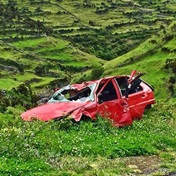
Young people with epilepsy are more likely than kids without the neurological disorder to suffer broken bones or burns, a new large study from England finds.
Surprisingly, the study also found that those under the age of 24 who have epilepsy face twice the risk of medicinal poisoning compared to their peers. Among epilepsy patients between the ages of 19 and 24, that risk was four times greater.
"Children and young adults with epilepsy are more likely to suffer broken bones, burns and poisonings compared to those without epilepsy," said study author Dr Vibhore Prasad.
Read: Is epilepsy fatal?
"The research findings highlight the need for further research into whether young people with epilepsy are at greater risk from an overdose – accidental or intentional – of their epilepsy drugs or other medications," said Prasad, a clinical lecturer and a doctoral research fellow at the University of Nottingham.
The study
The study encompassed data from nearly 12 000 people with epilepsy and almost 47 000 people without it. All were aged between 1 and 24 years at the start of the study. They were followed for an average of 2.6 years.
People with epilepsy had an 18% increased risk of any kind of fracture compared to those without epilepsy. They also had a 23% higher risk of a long bone fracture (a break in an arm or leg), according to the study.
The risk of a burn injury was one-and-a-half times higher in young people with epilepsy versus those without the disease. The overall risk of medicinal poisoning was more than two times higher in young people with epilepsy. The risk of poisoning was only elevated for medicine, not for any other substances, the study found.
Intentional overdoses?
It's unclear why poisonings might be higher in someone with epilepsy. Prasad explained that the researchers couldn't answer that question precisely because there wasn't enough detail in the data.
"However, it is possible that the older adolescents and young adults are taking overdoses intentionally due to easy access to their medication at times of emotional distress, or that they are mistakenly taking the wrong dose as they learn to look after their own medication," Prasad said.
"For the very young children, it could be due to storage of the medication within reach of the children and the fact that children with epilepsy have easy access to medication that is prescribed for them," he added.
The study found an association between having epilepsy and a higher risk of certain injuries and medication poisoning, but not a cause-and-effect relationship.
Read: The outcome of epilepsy
Another expert noted that epilepsy is often accompanied by mental health conditions.
Injury likely from seizures
"One in three teens and older [people] with epilepsy [also has] anxiety, mood disorders or some kind of personality issues," said Dr. Ajay Gupta, section head of paediatric epilepsy at the Epilepsy Centre at Cleveland Clinic, in Ohio. "But, we don't know if it's a consequence of the disease or the circumstances around the disease. Many researchers are looking at this, but it's hard to tease out."
Experts said the increased risk of fractures and burn injuries likely resulted from seizures. And they agreed that more research was needed to see why the rates of medicinal poisonings were so much higher.
Prasad pointed out that while the risk of injury is higher for people with epilepsy, it's important to note the risk is still small. "For example, the risk of a poisoning in the next five years for 1000 people with epilepsy is about one in 20 extra poisonings compared to people who do not have epilepsy," he said.
Read: Surgery may 'cure' epilepsy
Medications should be locked up
Prasad recommended that epilepsy medications be locked up, especially when there are young children at home.
As children with epilepsy grow up and move out, La Rabida's Macmillan recommended "keeping the lines of communication open. Stay in touch with your children, even as they become young adults, and seek help, if necessary," she said.
"We counsel patients and families that activities with water, fire and heights are probably the biggest source of injuries," said Cleveland Clinic's Gupta. "Because this study's findings were so robust, medicinal poisonings should also be an important counselling point," he said.
Results of the study were published online and in the print issue of Paediatrics.
Read more:
Treatment of epilepsy
Symptoms and signs of epilepsy
Epilepsy and diet




 Publications
Publications
 Partners
Partners















